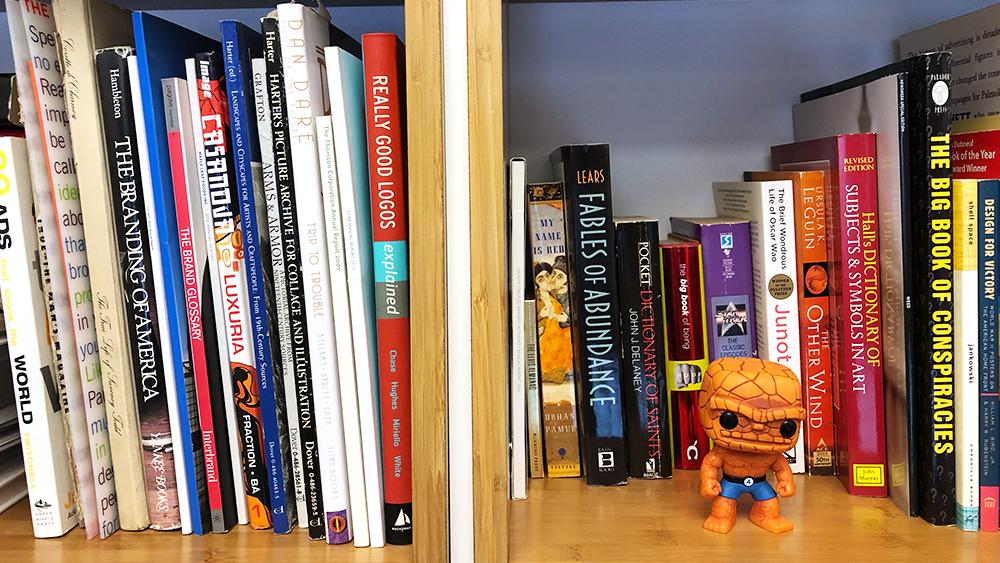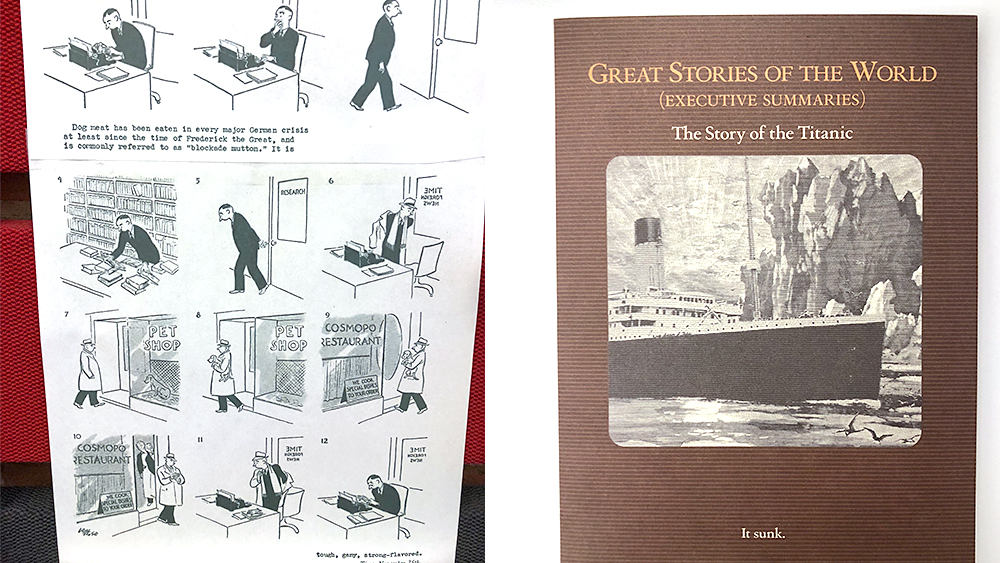Works Five: Eric Johnson, Director of Strategic Communications

In an ongoing series about The Works’ staff, we chatted with Director of Strategic Communications Eric Johnson about comic books, client relationships and the essential qualities of any great writer.
WHO are you?
I’ve been with The Works for 15 years, and for the last 10 or so, I’ve had a lead role in our communications strategy. I help companies say what they want to say, and then get other people to pay attention. I also help clients use identity and communications as tools to support their business and sustainability initiatives. Before coming to The Works, I’d been a copywriter and an account manager. And I started here as an account manager, too, but I wound up spending more and more of my time, first, fixing copy I didn’t like and then writing original copy for clients. Eventually, we all agreed to bow to reality and I became our in-house writer, and then our Director of Strategic Communications – which involves giving clients ideas and guidance along with snappy headlines and engaging (one hopes) copy.

Eric’s bookshelf is a delightful mishmash of anything and everything, from helpful marketing and brand strategy classics to post-feminist comics in tradepaperback form.
WHAT do you mean by “communications strategy”?
You start with a client who has an objective that must be met – you make sure you understand that objective and then you try to figure out how to use communications to meet that objective. Basically, you find the best way to tell the story the client needs to tell. To do that, you have to know a lot about a company – its goals, history, brand, marketplace and so on. (If you don’t like research, this is not the job for you.) Then, after collaborating with account directors, designers and clients, and soliciting their thoughts and insights, I try to frame what I’ve learned in a way that will click with the audience.
WHERE do you see The Works going in the next five years?
More and more, we’re shifting our focus to relationship-based services. No matter the communications project – ads, blogs, PR and so on – we want our clients to call us first. When I started here, our primary offering was annual reports. Now we’re also known for sustainability reporting, online design, branding and social media. We want to grow our capacity in all of these areas (and more) to better serve our clients. Take our editorial department. We’ve really expanded our roster of in-house writers, including people with social media expertise, which means we can do more for our clients. That’s the foundation for building long-term relationships.

Visitors to Eric’s nook in the studio are likely to encounter quirky jokes and fabulous promotions from the firms of yesteryear.
WHEN do you know that you’ve done enough research on a project?
Honestly, I never know. I’d probably research forever if I didn’t have a deadline looming. A big part of this business – and one of the best parts – is that you’re always learning new stuff. To keep doing this for over 15 years, you need to stay curious. And, fortunately for me, we’ve got interesting clients – I’ve learned about things like airport design, high-end jewellery, mining and winemaking. Even actuarial tables are interesting when you’ve got the right teachers, and our pension and insurance clients know their stuff.
WHY is storytelling essential to corporate communications?
The foundation of being a good writer is being a good reader, because you learn to love and appreciate good stories. Storytelling turns data into meaningful information; it makes content memorable. Across all cultures and eras, storytelling has always been valued. I’ve found that the people who run successful companies instinctively understand that there is a story at the heart of what they do. Maybe it’s the history of the organization. Maybe it’s the dream of ending food insecurity. Whatever it is, if you want to capture people’s interest and imagination, you need to tell a compelling story. Actually, for this industry, my love of comic books has proven to be a real asset. Comics combine images and type to tell stories that intrigue, excite, inform and engage, which is exactly what we do. But, you know, with fewer capes and monsters.




